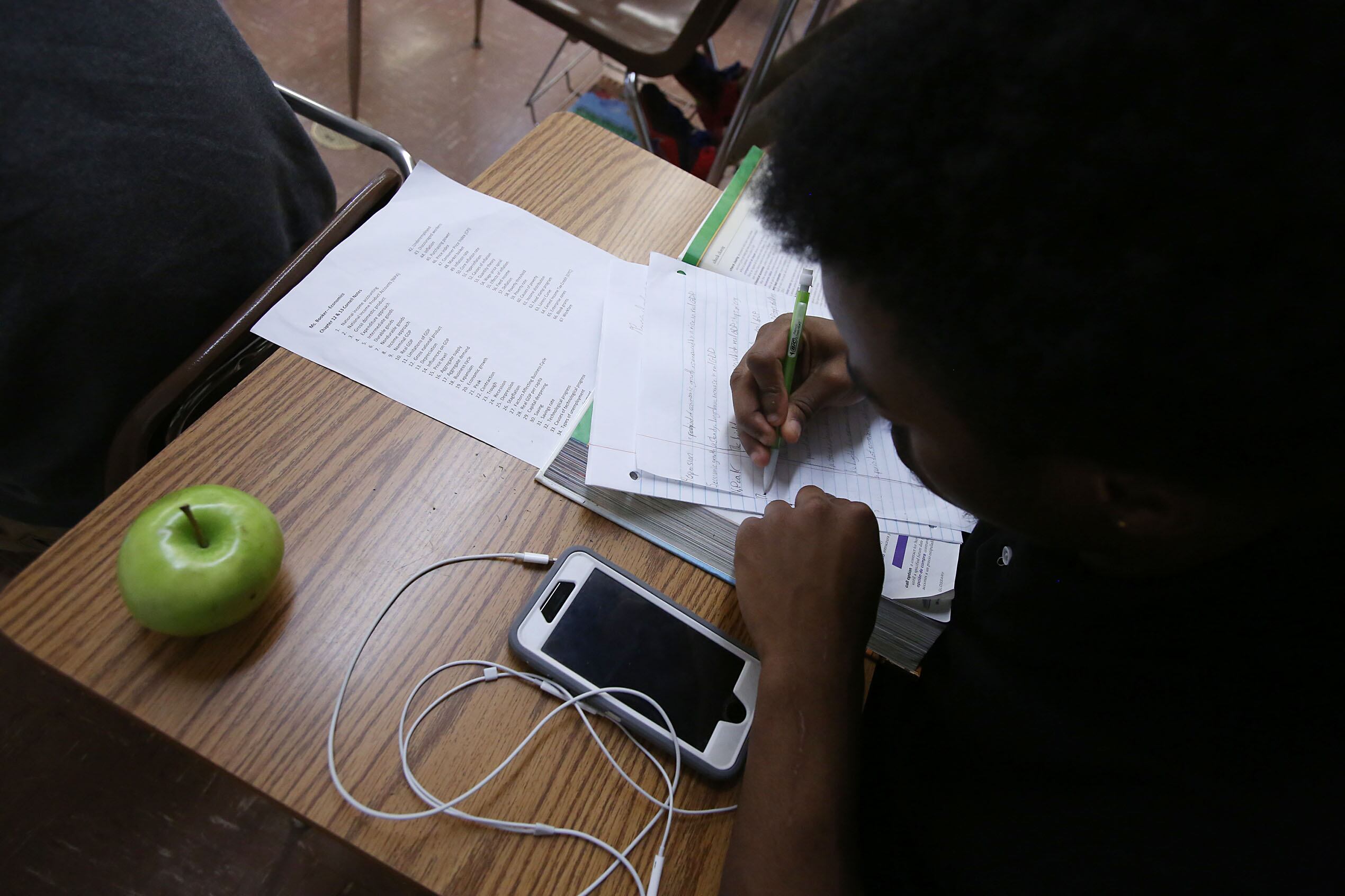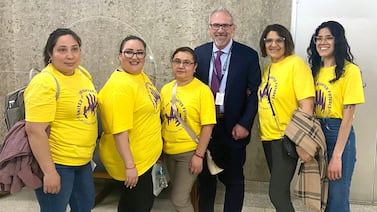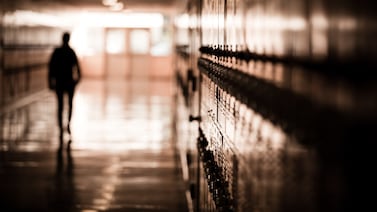One student had been hiding self-harm scars under long sleeves. Another was suffering abuse at home. A third was sexually assaulted at school. A fourth threatened to kill a classmate.
All four got the help they needed after classmates alerted Michigan State Police using its confidential OK2SAY tipline, which logged a record 6,255 tips last year, up 67% from the year before. More than half of those tips arrived the month following the Nov. 30 shooting at Oxford High School that killed four students and wounded seven.
“Within days of the Oxford tragedy, school threats emerged throughout Michigan, requiring schools and law enforcement to work around the clock to address each incident,” according to the OK2SAY annual report released Friday. Dozens of people, mostly juveniles, have been charged in connection with those threats, police said.
In total, 1,786 tips last school year related to planned school attacks, and dozens of them led to temporary school closures. That’s up from just 52 such threats reported the previous school year.
Policy said copycat threats are common after school shootings, but they aren’t bothered by reports of them.
“If it’s an honest concern, you don’t have to worry” about whether to report it, Fossati said. Just call it in, he said.
It’s impossible to know whether any of the copycat threats would have been carried out if not for the tipline, but police believe OK2SAY has helped avert suicides, assaults, and vandalism. They have not said whether OK2SAY received any warnings ahead of the Oxford shooting.
Created in 2014, the tipline program provides an anonymous way for students, parents, and others to report threats, bullying, abuse, drug use, and other concerns to technicians trained to evaluate them and refer them to appropriate authorities, whether police, school principals, or community resources.
The goal is to identify struggling students and provide help before troubles become tragedies.
In addition to the 1,786 tips related to threats to attack schools, 722 related to threats to harm specific individuals rather than school buildings. There were 533 tips related to bullying, 500 related to suicide threats, and 632 related to anxiety, depression, stress, and harassment.
Thirty-four tips resulted in the confiscation of weapons, and 86 resulted in the seizure of drugs or alcohol, police said.
Most tips came in by text message rather than voice call, said state police Sgt. Carlos Fossati, team lead for the OK2SAY program, which operates under the Michigan State Police Office of School Safety.
He encourages students to call in any concerns, even if they aren’t sure the information they have is credible or comprehensive.
Each tip is “a finite piece of the puzzle,” Fossati said, “but somebody we’re going to share that information with might have a larger picture and is just missing that little bit of information.”
OK2SAY technicians protect the identity of tipsters, Fossati said. They don’t provide that information even to responding officers or school personnel, he said.
Col. Joe Gasper, director of the Michigan State Police, said the program provides a much-needed safety net that prevents individual and community crises.
More than half of the public middle and high schools nationally have access to tiplines, according to a U.S. Department of Justice report. Researchers found that the most successful have trained teams like Michigan’s that answer calls around the clock and coordinate responses with both law enforcement and school personnel.
OK2SAY costs about $1.1 million per year to operate.
It was modeled after Colorado’s Safe2Tell program created in response to the 1999 massacre that killed 15 students and wounded dozens more at Columbine High School.
Tracie Mauriello covers state education policy for Chalkbeat Detroit and Bridge Michigan. Reach her at tmauriello@chalkbeat.org.








